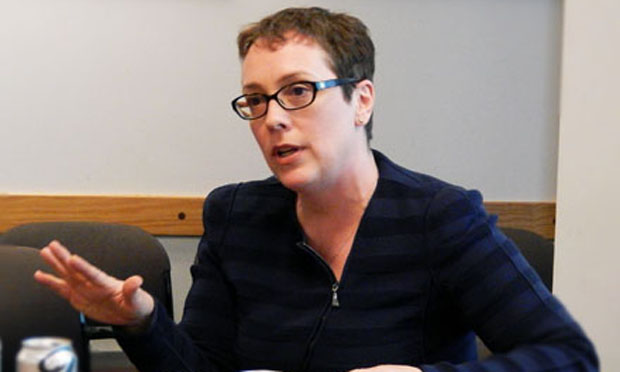Throughout the academic year, the Harvard Kennedy School’s Shorenstein Center hosts a weekly speaker series. Over the spring semester in 2014, these events featured a wide variety of journalists and media thinkers, from Julia Angwin and Andrew Revkin to Demorah Amos and Brian McGrory. We’ve rounded up discussions of interest for journalists and media members of all kinds; topics of conversation range from media coverage of Syria to the struggle to maintain privacy in a world of omnipresent surveillance.
The following are seven highlights from this spring’s discussions. A full list of past Shorenstein Center events can be found in the calendar archive. You can also subscribe to the iTunes feed to hear these and future conversations.
______
David Carr, New York Times: ‘New skin’ needed for old news models
Carr, the media and culture columnist for the Times, stated that the entire news platform is changing. “It’s not push, it’s pull,” he said. “If people want it, they’ll grab it and pull it back.” This more interactive news distribution is put into practice by sites that allow users to “vote up” for the content they want and like.
[soundcloud url=”https://api.soundcloud.com/tracks/134416174″ width=”100%” height=”166″ iframe=”true” /]
______
Julia Angwin, ProPublica: How to protect your private data online
In the midst of constant tracking from both the commercial and government spheres, is the whole idea of privacy dead? In Angwin’s book Dragnet Nation, the senior reporter for ProPublica recounts how she tried to engage online in a meaningful way while protecting important personal data.
[soundcloud url=”https://api.soundcloud.com/tracks/146103227″ width=”100%” height=”166″ iframe=”true” /]
______
Andrew Revkin, New York Times: “Digital tools can help journalists cover complexity of climate change”
Author of the Dot Earth blog for the New York Times, Revkin advised journalists covering climate change to keep in mind that people don’t typically respond to vague scientific terminology, but they generally support “energy wisdom” — practical mandates, regulations and limits on emissions.
[soundcloud url=”https://api.soundcloud.com/tracks/144051046″ width=”100%” height=”166″ iframe=”true” /]
______
Deborah Amos, National Public Radio: Facts and propaganda at war in Syria’s chaotic media landscape
Middle East correspondent for NPR, Deborah Amos noted that “there are at least five different wars” going on simultaneously in Syria, “the most complicated of all the conflicts in the Middle East,” yet the media is criticized for not getting it right. “It’s not that we didn’t get it right,” Amos argued, “but it’s beyond our powers to explain just how complicated this story is.”
[soundcloud url=”https://api.soundcloud.com/tracks/144870338″ width=”100%” height=”166″ iframe=”true” /]
______
Brian McGrory, Boston Globe: “The business model is broken — but journalism is not”
The Boston Globe’s editor offered key insights and predictions into the future of newspapers. While the news business has changed dramatically in recent years, he said, there are positive signs for the future.
[soundcloud url=”https://api.soundcloud.com/tracks/143883258″ width=”100%” height=”166″ iframe=”true” /]
______
Ben Smith, BuzzFeed: Is the new newsroom the future?
Smith, the editor-in-chief of Buzzfeed, discussed how the online media system has grown and changed, from the birth of blogs to the debut of social media. Twitter “changed the structure of news distribution,” Smith said: Sites no longer fight to get readers on to their front page because the front page is becoming more and more irrelevant.
[soundcloud url=”https://api.soundcloud.com/tracks/136722392″ width=”100%” height=”166″ iframe=”true” /]
______
Andrea Mitchell, NBC News: Covering foreign affairs while keeping the facts straight
Chief foreign affairs correspondent for NBC, Mitchell discusses the challenges of reporting on global issues in an ever-changing media environment. She feels there’s a “great appetite” for foreign coverage, but questions whether reporters have the tools to report accurately, even with social media and other new technologies.
[soundcloud url=”https://api.soundcloud.com/tracks/134485964″ width=”100%” height=”166″ iframe=”true” /]


Expert Commentary